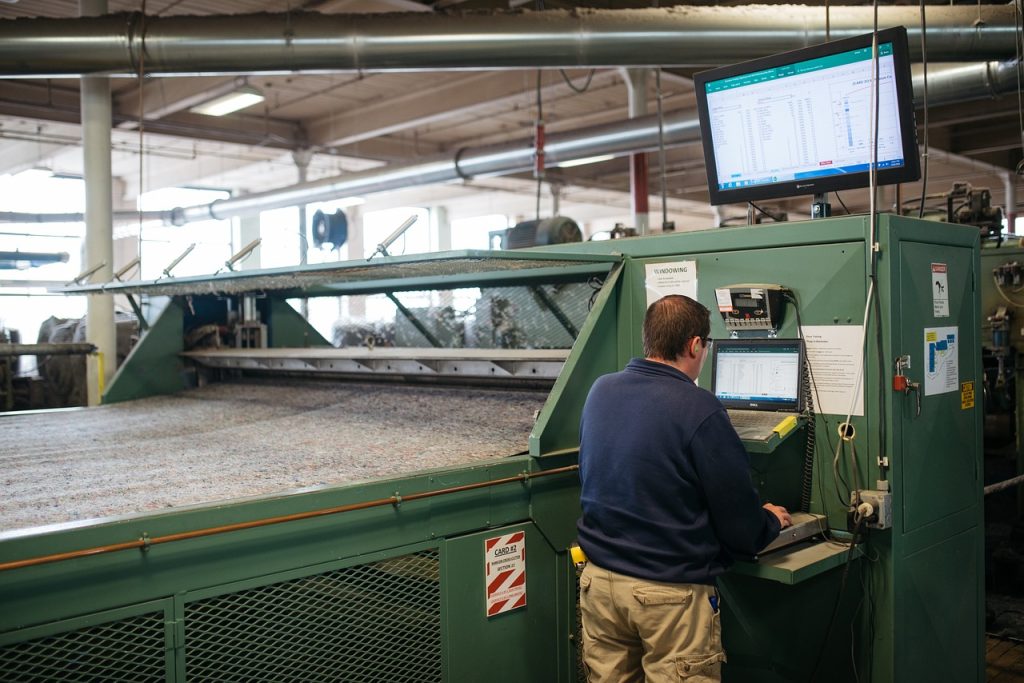Types of Manufacturing CRM Software: Find the Right Solution for Your Business
Comprehensive Guide to Types of CRM Software for Manufacturing

The manufacturing industry is experiencing a digital transformation, and Customer Relationship Management (CRM) software is at the forefront of this revolution. With various types of manufacturing CRM software available, manufacturers can enhance customer relationships, streamline operations, and boost productivity. This article explores the different types of CRM software for manufacturing companies, their features, and how they contribute to better management in the manufacturing sector.
What is Manufacturing CRM Software?
Manufacturing CRM software is specifically designed to address the unique needs of manufacturing companies. Unlike traditional CRM systems, these tools incorporate functionalities like production planning, supply chain management, and order tracking. They act as a bridge between operational processes and customer-facing activities, ensuring that businesses can maintain strong relationships with clients while optimizing internal workflows.
Why is CRM Important for Manufacturing Companies?
In the manufacturing landscape, CRM tools provide essential support for:
- Strengthening Customer Relationships: Streamline interactions and deliver personalized services.
- Streamlining Operations: Enable seamless integration with systems like ERP (Enterprise Resource Planning).
- Enhancing Sales Efficiency: Automate lead tracking and sales management.
- Improving Supply Chain Collaboration: Foster better communication with suppliers and partners.
- Delivering Actionable Insights: Utilize analytics to drive strategic decision-making.
Types of Manufacturing CRM Software
Manufacturing CRM software can be classified based on their functionality and deployment models. Here are the primary categories:
- Operational CRM: Focuses on automating daily processes such as order management, inventory tracking, and customer support. This type is ideal for manufacturers aiming to enhance their operational efficiency.
- Analytical CRM: Geared towards data analysis, this CRM type helps businesses identify market trends, customer preferences, and sales opportunities. It’s especially useful for companies prioritizing data-driven strategies.
- Collaborative CRM: Designed to facilitate communication between departments and external stakeholders. Collaborative CRMs are invaluable for manufacturers with complex supply chains or distributed teams.
- Cloud-Based CRM: These solutions offer flexibility and scalability by being hosted online. They’re particularly suitable for businesses seeking remote access and cost-effective deployment.
- Industry-Specific CRM: Tailored to meet the specialized needs of manufacturers, such as production tracking and vendor management. These systems provide features customized for manufacturing workflows.
Key Features of CRM Software for Manufacturing Companies
When evaluating the best management software for manufacturing, look for these essential features:
- Order and Inventory Management:
Track orders, manage inventory levels, and ensure timely delivery.
- Sales Pipeline Management:
Monitor leads and opportunities throughout the sales cycle.
- Customer Segmentation:
Group customers based on preferences, purchase history, and behavior.
- Supplier and Vendor Collaboration:
Streamline communication with suppliers and vendors.
- Data Analytics and Reporting:
Generate insights into customer behavior, market trends, and operational efficiency.
- Integration Capabilities:
Connect with ERP, production planning, and other management software for manufacturing.
- Mobile Accessibility:
Access CRM tools on-the-go for real-time updates.
Benefits of Manufacturing CRM Software
Manufacturing businesses stand to gain significant advantages by adopting CRM solutions, including:
- Improved Customer Satisfaction: Enhanced service delivery through personalized interactions and timely responses.
- Higher Productivity: Automation of routine tasks to free up resources for strategic priorities.
- Informed Decisions: Analytics-driven insights help businesses adapt to changing market conditions.
- Operational Efficiency: Streamlined processes through integrated systems.
- Cost Optimization: Reduced wastage and better resource allocation.
How to Choose the Right CRM Software for Manufacturing Companies
Selecting the most suitable CRM software requires a clear understanding of your business needs. Here are some steps to guide the decision:
- Assess Your Challenges: Identify specific pain points and operational gaps.
- Prioritize Features: Look for essential functionalities such as order management, analytics, and integration.
- Evaluate Scalability: Choose a system that can grow with your business.
- Check Integration Options: Ensure compatibility with existing tools like ERP systems.
- Review Support Services: Opt for providers with reliable customer service and training resources.
Future Trends in Manufacturing CRM Software
The landscape of CRM software for manufacturing continues to evolve. Some emerging trends include:
- AI Integration: Predictive analytics and automation through artificial intelligence.
- IoT Connectivity: Integration with IoT devices for real-time data capture and monitoring.
- Mobile-First Features: Enhanced accessibility through mobile apps.
- Sustainability Tools: Support for eco-friendly practices in manufacturing processes.
- Cloud Adoption: Greater reliance on cloud-based systems for cost efficiency and flexibility.
FAQs About Types of Manufacturing CRM Software
1. What are the main types of manufacturing CRM software? The main types include operational CRM, analytical CRM, collaborative CRM, cloud-based CRM, and industry-specific CRM.
2. Why is CRM important for manufacturing companies? CRM helps manufacturers enhance customer relationships, streamline operations, and improve sales efficiency.
3. What is the best management software for manufacturing? Top options include Salesforce Manufacturing Cloud, Microsoft Dynamics 365, monday.com, Workbooks CRM, and Zoho CRM.
4. How do I choose the right CRM software for my manufacturing business? Assess your needs, evaluate features, check integration capabilities, and ensure the solution is scalable and user-friendly.
5. Can small manufacturing companies benefit from CRM software? Yes, CRM software provides tools to improve customer interactions, optimize operations, and support growth for businesses of all sizes.
Understanding the types and functionalities of CRM software is crucial for manufacturers aiming to stay competitive in a digitally driven market. By focusing on solutions that align with their specific needs, businesses can streamline operations, enhance customer experiences, and drive sustainable growth. The right CRM system is not just a tool but a strategic asset that can transform the way manufacturers operate.
